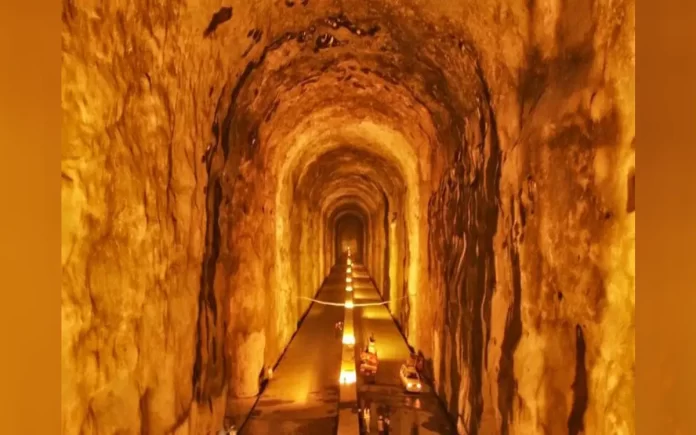New Delhi: In a strategic move aimed at enhancing energy security, the Government of India has announced plans to lease out space in underground rock caverns originally intended for storing hydrocarbons as part of the nation’s strategic petroleum reserve. This decision reflects India’s proactive response to evolving trends in global oil markets and its commitment to optimizing infrastructure for resilience.
Reported by PTI, the announcement signifies a shift in strategy, with an expression of interest for leasing the storage facilities set to be issued soon. These underground storage sites, strategically positioned in three southern Indian cities—Visakhapatnam, Mangalore, and Padur in Karnataka—were initially developed by India Strategic Petroleum Reserve Ltd. to stockpile 5.33 million tonnes of oil for emergency scenarios like supply disruptions or conflicts.
By deferring plans to fill the caverns with crude oil, as outlined in the Union Budget 2023-24, India aims to repurpose these assets to meet evolving energy demands and promote commercial utilization, showcasing adaptability to changing market dynamics.
Currently, the National Oil Company (Adnoc) from Abu Dhabi has secured leasing rights for half of the storage capacity at Padur and 1.5 million tonnes at Mangalore. However, substantial storage space remains available, including 0.75 million tonnes at Mangalore and the vacant portion in Visakhapatnam, which will soon be open for leasing, according to LR Jain, CEO and Managing Director of Indian Strategic Petroleum Reserves Limited (ISPRL).
Notably, Jain underscored that while international companies like Adnoc can store oil in these reserves, India retains priority access to the stored oil, ensuring preparedness during emergencies. This provision reaffirms the government’s dedication to national energy security and resilience in challenging circumstances.
The decision to lease out these caverns marks a strategic shift in India’s energy management strategy, given its status as the world’s third-largest oil importer and consumer. By optimizing existing infrastructure and collaborating with global partners, India aims to fortify its energy resilience and mitigate risks associated with market fluctuations. In the pursuit of sustainable economic growth, such strategic initiatives play a pivotal role in securing India’s energy future.



